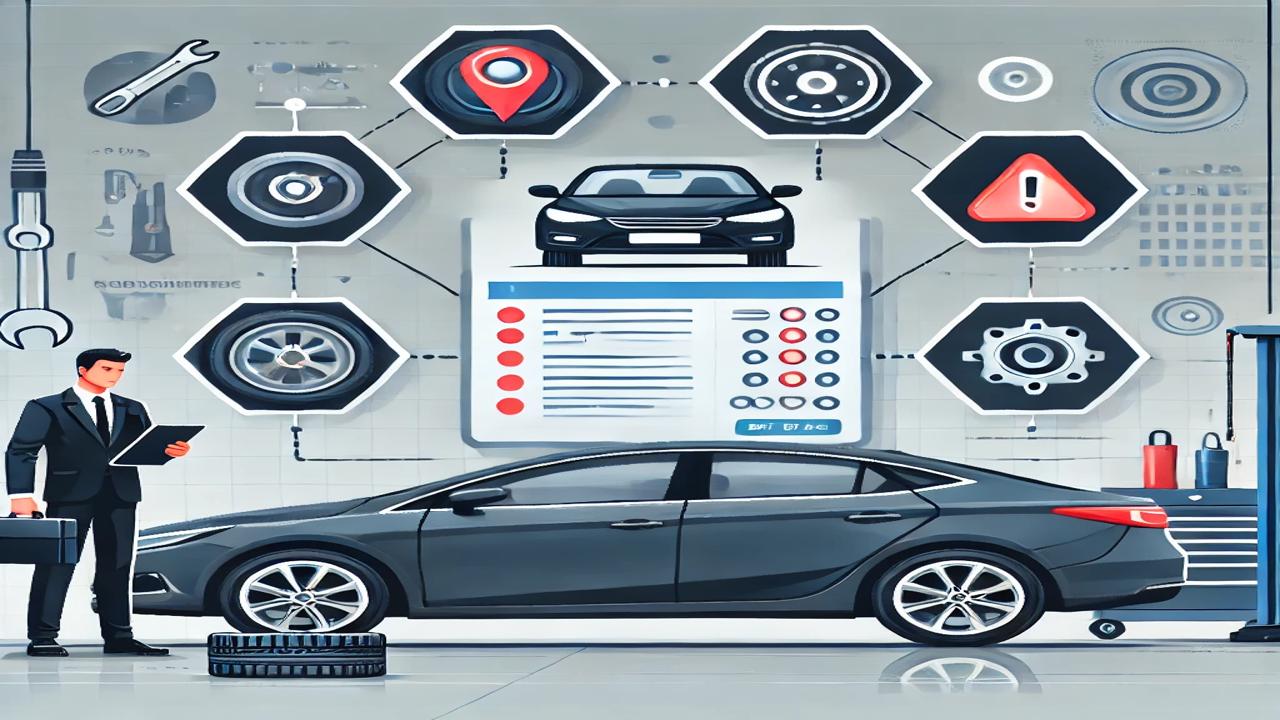Car Breakdowns: Common Problems and Solutions

Cars are indispensable parts of our daily lives. However, just like any other machine, cars can break down from time to time. In this article, we will discuss the most common issues that car owners face and the solutions to these problems.
- Engine Problems Engine breakdowns are among the most concerning issues for car owners. Problems such as the engine not starting, running roughly, or idling irregularly typically indicate an issue with the fuel system, ignition system, or engine components.
Solution:
- Fuel System Check: The fuel filter might be clogged, or the fuel pump may be malfunctioning. In this case, you should replace the filter or have the pump checked.
- Ignition System: Issues in this system can stem from parts such as spark plugs or ignition coils. These parts might need replacement.
- Engine Oil: Low or dirty engine oil can cause the engine to malfunction. It’s important to check the oil level and perform regular oil changes.
- Brake System Failures Brakes are critical for vehicle safety. If the brakes are not working properly, making noises, causing vibrations during braking, or if the pedal feels stiff, it indicates a problem with the brake system.
Solution:
- Brake Pads and Discs: If the pads are worn out or the discs are damaged, braking performance will decline. The pads and discs might need replacing.
- Brake Fluid: Low or contaminated brake fluid can cause braking inefficiency. The fluid should be replaced.
- Brake Hoses: Check for any cracks or leaks in the hoses. If there are leaks, the hoses need to be replaced.
- Electrical Failures Electrical system failures are common issues that car owners encounter. Problems such as headlights not working, battery issues, abnormal readings on the dashboard, or a malfunctioning starter motor signal electrical issues.
Solution:
- Battery Check: The battery might be weak or dead. It may need charging or replacement.
- Alternator Issues: The alternator is responsible for charging the battery. If it’s faulty, the battery can discharge, and the car might not start. The alternator should be checked.
- Fuses and Wires: A blown fuse or broken wires can affect the electrical system. Replace the fuse or repair the wires.
- Suspension System Problems The suspension system plays an important role in the vehicle’s handling and comfort. Problems with the suspension system can cause the vehicle to drive roughly, make the steering stiff, or affect road grip.
Solution:
- Shock Absorbers: Worn-out shock absorbers can make the suspension system ineffective. The shock absorbers should be inspected and replaced if necessary.
- Springs: Any deformation or breakage in the springs can cause suspension issues. Springs may need replacing.
- Steering Arms and Links: Issues with the steering system can result in improper steering. The steering components should be checked.
- Cooling System Failures The cooling system prevents the vehicle’s engine from overheating, especially in hot weather conditions. A low coolant level, radiator blockages, or thermostat failures can cause the engine to overheat.
Solution:
- Coolant Check: It’s important to regularly check the coolant level. Low levels can cause overheating. Replenishing the coolant might be necessary.
- Radiator Cleaning: Blockages in the radiator can hinder the flow of coolant. The radiator should be cleaned.
- Thermostat: The thermostat regulates the engine temperature. If it's faulty, the engine might overheat, and it should be replaced.
- Transmission Problems Issues like difficulty shifting gears, hearing unusual noises, or slipping gears are common transmission problems.
Solution:
- Transmission Fluid: Low or dirty transmission fluid can cause hard gear shifts. The fluid should be changed.
- Clutch System: In manual cars, issues with the clutch system can arise. The clutch pedal should be inspected and replaced if necessary.
- Automatic Transmission: Problems with an automatic transmission may stem from the electronic control system. In such cases, a professional service is recommended.
- Exhaust System Problems Exhaust system issues can indicate that the system responsible for controlling emissions is not functioning properly, leading to engine inefficiency, loud noises, or environmental pollution.
Solution:
- Exhaust Pipe and Parts: The exhaust pipe might be clogged or damaged. The pipe may need replacing.
- Catalytic Converter: If the catalytic converter is faulty, it can’t neutralize exhaust gases. It may need to be replaced.
In conclusion, vehicle breakdowns, if not properly diagnosed, can lead to high costs. Early detection and timely repair can extend your vehicle's lifespan and ensure safe driving. By addressing the common problems outlined above, you can keep your car performing at its best. However, some issues require professional intervention, so regular maintenance and expert assistance are crucial.










